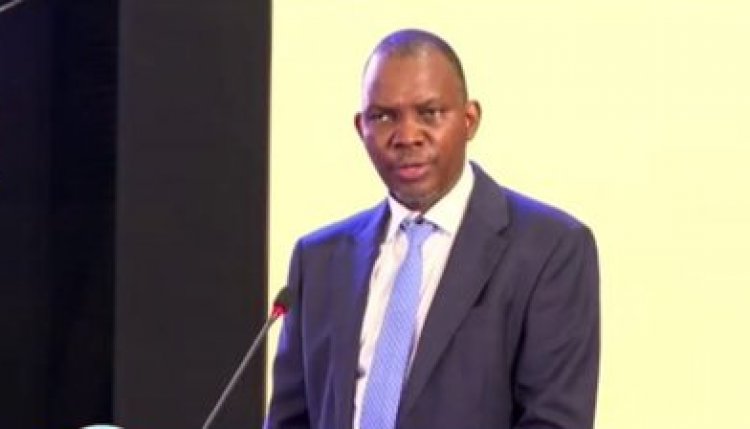Informal businesses undermining financial institutions’ contribution to tax revenue collection: Experts

As other taxpayers perceive that Uganda’s tax system is fairer and are more likely to comply voluntarily, taxing the informal economy is often expected to lead to substantial revenue gains both directly from the newly-registered firms, and indirectly from positive spillover effects, experts have however explained that that attempts to tax the informal economy through financial institutions typically mostly resulted in only limited revenue, with the cost of collection, often being higher than the revenue raised.
Uganda Revenue Authority (URA) in a bid to strengthen stakeholders’ engagement and coalition convened with experts from financial institutions to address how they boost their contribution to Uganda’s Domestic Revenue Mobilization efforts towards achieving the Domestic Revenue Mobilisation agenda.

During the 6th edition of the URA bankers Conference held at Mestil hotel on 13th May 2022, The Commissioner General URA John R. Musinguzi pictured above told financial institution’s representatives that the financial institution needs to strengthen their partnership with URA further improve government revenue collection through their services they render to businesses as a component of economic development.
“You are a key player in the Government’s domestic revenue mobilization efforts because of your strategic contribution to facilitating businesses through financial literacy, banking services, and payment platforms that enable taxpayers to honor their tax obligations. This is a vital component of our economic development” he said
The theme of the 6th URA Annual Banks’ Conference was “The role of financial institutions in the Domestic Revenue Mobilization Strategy”
He said that the services of financial institutions have the ability to extend URA service to the population of Uganda by improving tax compliance.
“You are a vital link and an extension of URA services to the taxpayer and business community. You have the power to win over more taxpayers towards the path of tax compliance through their experience of the quality of your service” he said

The Acting Director, Economic Affairs, in the Ministry of Finance, Planning and Economic Development, Moses Kaggwa in picture above, highlighted that the services of financial have assisted URA performance through tracking and recovering taxes as they provide access to financial services that facilitate tax recovery
“Banks, insurance companies, and other financial institutions provide liquidity to the companies and consumers by providing various payment systems essential for their money transactions. Financial institutions are used by companies and taxpayers to carry out their transactions. In turn, URA obtains precious information from those financial institutions, such as the income and assets of taxpayers” he explained.
The Economic Affairs Director however explained that Uganda’s huge size of the informal economy estimated at 51%, is undermining the efforts to acquire tax information more a number of taxpayers.
“Tax-to-GDP ratios increase when bank deposits increase, meaning that taxes on GDP increase for a given value of bank deposits,” he said
The Deputy Executive Director, Uganda Private Sector Foundation Uganda, Francis Kisirinya said “65% of businesses that collapse in the first 5-years are informal businesses. A bank will want to work with a formal company including getting contracts,
Uganda is currently funding 47% of the national budget leaving us to borrow the remaining 53%. Our tax-to-GDP ratio is 13%, lowest and below the average sub-Saharan African performance of 16%. Research has also shown that for Uganda to fully fund its national expenditure, there is need to at least double our Tax-to-GDP ratio to 26%.
The Domestic Revenue Mobilisation Strategy according to the experts is a 5-year planning tool aimed at strengthening the administrative effort to support tax collection and increase transparency in the direction of tax policy-making in Uganda.
The strategy was a result of protracted collaborative efforts by the Ministry of Finance, Planning and Economic Development, Uganda Revenue Authority, Development Partners, the academia, civil society, and the business community which includes the banking sector.
It is also geared towards improving revenue collection and increasing the tax-to-GDP ratio to 18% by the financial year 2023/2024.












